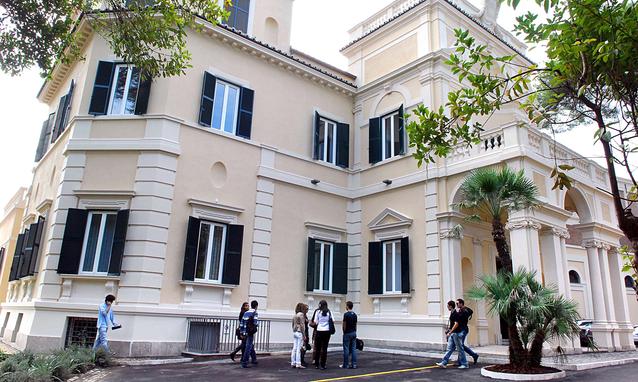“I didn’t expect to find all this and with so many people” says Giorgio Squinzi, the president of Confindustria, Italy’s employers’ federation, on his arrival at the glass office complex of LuissEnlabs for the opening ceremony. Where there was once a long-forgotten train museum, there is now a gigantic maternity ward for new companies (copyright of Massimo Angelini, public relations director of Wind, the main sponsor).
“We are on track 24 at Rome’s main train station: 1,500 square meters where twenty-or-so newborn companies already have their base, and this number could soon double. We are open to everyone, students from other universities, non-students and international companies” explains Emma Marcegaglia, president of Luiss, the Confindustria university which, along with Enlabs, has given birth to this “start-up factory” in the nerve center of a major station and in one of the largest university cities in Europe with 22 institutions and nearly 300,000 students.
“We already have requests from abroad, and soon the American company, Uber, will transfer here from Milan. This is also a co-working space for professionals and consultants. We don’t just host start-ups we invest in” explains Luigi Capello, the creator, soul and driver of this initiative. In 2010 he founded Enlabs following extensive venture capital experience. “Instead of sending our best ideas to the United States, I preferred to create the basis for their development here” he tells us.
In 2012 he brought together about 2.5 million euros and invested 1.5 million of them. Now, a major step forward with the new base of operations in partnership with Luiss. The start-ups selected twice a year receive 30,000 euros, a range of services, legal help, mentor consulting and contacts with investors. They are looked after for six months, after which they must find new financial resources to bring their ìproductî to the market.
A program whose concept is to jump-start the transformation of an idea into a business, hopefully a successful one. “It is just our little, but concrete, answer to three major problems in Italy” Marcegaglia explains. “The closing of too many companies, unemployment and lack of innovation”.
“The Italian economy is not fertile ground for new companies” Squinzi complains, as if it were something he wasn’t part of. And he says that what is needed is to return to the resourceful spirit of the post-World War II era. Something probably not that familiar (or comprehensible) to the young residents of LuissEnlabs, busy with their apps, videogames and crowdsourcing. But the fact that Confindustria has decided to become personally involved at the highest level is a good sign for startup companies. And the encounter between investors and a university is an interesting model for exchanging experience and expertise that could also prove useful to others. The important thing is to start doing business. And today it doesn’t take much” is Capello’s enthusiastic and optimistic conclusion.

